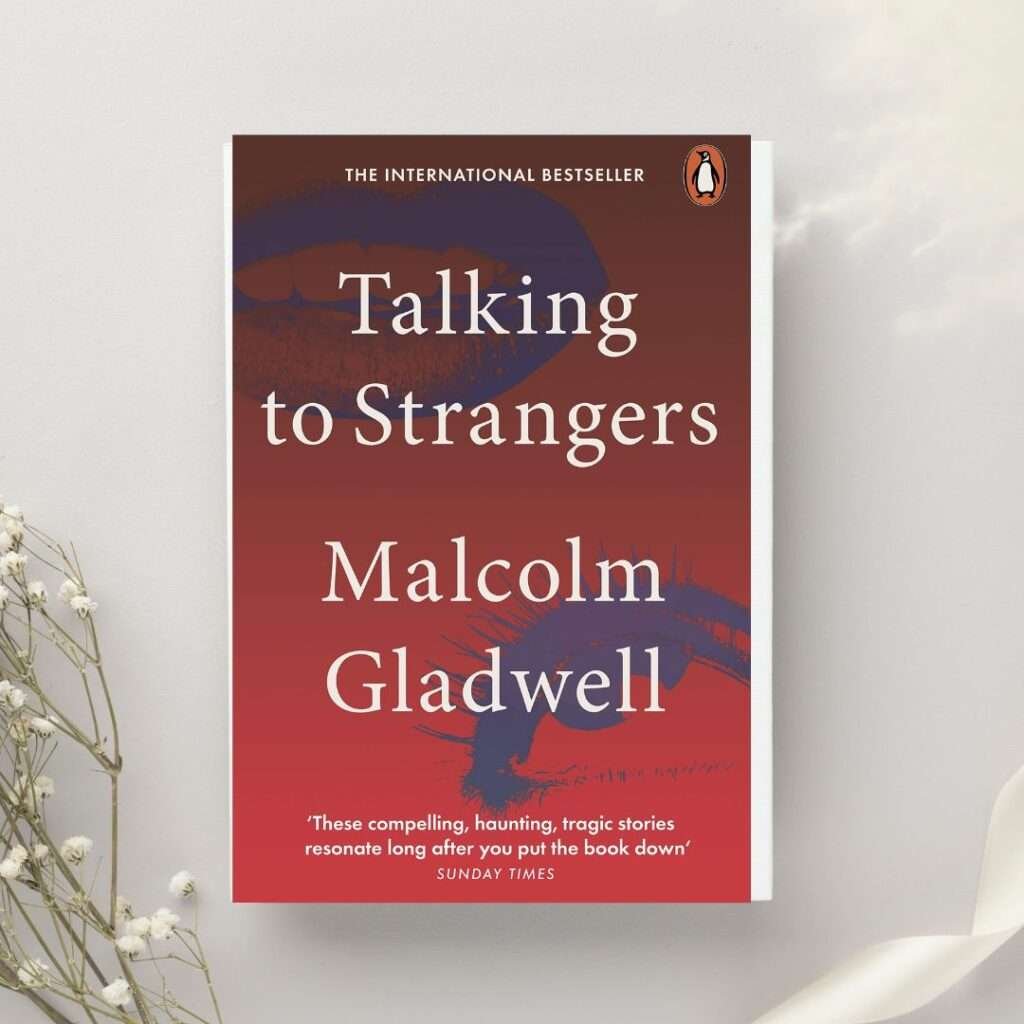Brief of Talking to Strangers
“Talking to Strangers” by Malcolm Gladwell is a thought-provoking book that explores the challenges of understanding and interpreting human behavior, particularly when it comes to strangers. The book is divided into several chapters, each of which explores a different aspect of how we interact with strangers and how our perceptions can lead us astray.
One of the key takeaways from Talking to Strangers is that our understanding of human behavior is often flawed and that we are susceptible to making judgments based on limited information. Gladwell uses a variety of examples, such as the case of Amanda Knox, to illustrate how our perceptions can lead us to make false assumptions about people. He also explores how our biases and prejudices can cloud our judgment and lead to misunderstandings.
Gladwell also delves into the concept of “transparency” and how it can be misleading. He argues that people often project a certain image or persona, making it difficult to understand their true intentions and motivations. He uses the example of Bernie Madoff, who was able to deceive many people despite being a well-known figure, to illustrate how even those who are in the public eye can be difficult to read.
Another important theme in the book is the role of context in understanding human behavior. Gladwell argues that understanding the context in which an event occurred is crucial for understanding the behavior of the people involved. He uses the example of the Cuban Missile Crisis to illustrate how understanding the context of the situation helped leaders make better decisions.
Talking to Strangers is well-written and easy to read, with lots of interesting and thought-provoking examples. Gladwell’s writing style is engaging and he presents complex ideas in a clear and concise manner. The book is not only for those interested in psychology or sociology but also for anyone who wants to better understand human behavior and the challenges of interpreting it.
One potential downside of the book is that it can be quite dense at times, with a lot of information to digest. Additionally, some readers may disagree with the author’s perspective or findings on certain examples.
Overall, “Talking to Strangers” is a valuable resource for anyone interested in understanding human behavior and the challenges of interpreting it. The book provides an insightful and thought-provoking look at how we interact with strangers and how our perceptions can lead us astray. Gladwell’s writing style is engaging and he presents complex ideas in a clear and concise manner, making the book a great read for anyone looking to better understand human behavior.
10 Lessons to Talking to Strangers
- Our understanding of human behavior is often flawed and we are susceptible to making judgments based on limited information.
- Our biases and prejudices can cloud our judgment and lead to misunderstandings.
- The concept of “transparency” can be misleading, as people often project a certain image or persona.
- Understanding the context in which an event occurred is crucial for understanding the behavior of the people involved.
- Interpreting human behavior is a complex and challenging task.
- The way we interact with strangers and the judgments we make about them can have serious consequences.
- Listening and trying to understand the perspectives of others is important for accurate interpretation of behavior.
- Being aware of our own biases and prejudices can help us to make better judgments about others.
- The way we interpret behavior is affected by the information available to us at the time.
- It is important to remain open-minded and willing to revise our understanding of people as new information becomes available.
About the Author
Malcolm Gladwell is a Canadian journalist, author, and speaker. He is best known for his books “The Tipping Point,” “Blink,” “Outliers,” “David and Goliath,” “Talking to Strangers” and “Little Things.” He has been a staff writer for The New Yorker since 1996. He has also written for The Washington Post, The New York Times, and The Guardian. Gladwell’s books and articles often deal with the unexpected implications of research from the social sciences and make use of academic work, particularly in the areas of sociology, psychology, and social psychology.
Gladwell has been a popular speaker on the lecture circuit and has been praised for his ability to take complex ideas and present them in a simple and engaging way. He is considered one of the most influential thinkers of our time and his books have been widely read and critically acclaimed.
Follow Reviewzade on Instagram for regular updates. Check here for more book reviews.
Keywords: Talking to Strangers, Malcolm Gladwell, human behavior, psychology, sociology, social psychology, judgments, perceptions, biases, prejudices, transparency, context, understanding, strangers, consequences, communication, open-mindedness, critical thinking, research, social sciences, interpretation, implications.





